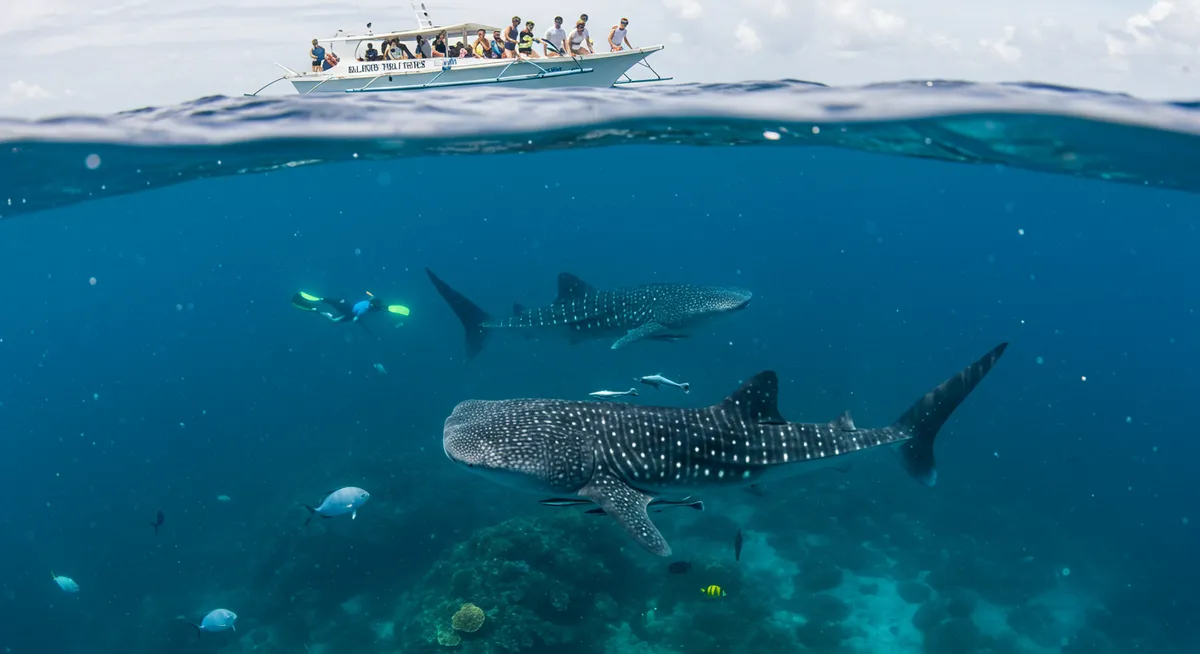
Ethical Oslob Whale Shark Watching: Your Guide to Responsible Encounters
Table of Contents
Want to find the best nature experiences for this destination? Chat with our nature tourism specialist!
Get Nature TipsCategory: oslob-whale-shark-watching-ethical-tips
Responsible Encounters: Your Guide to Ethical Oslob Whale Shark Watching
Having witnessed the incredible majesty of whale sharks firsthand, I understand the profound desire to interact with these gentle giants. Oslob, Cebu, offers a unique opportunity for this, but it comes with a responsibility to engage ethically. This guide provides essential Oslob whale shark watching ethical tips to ensure your experience supports marine conservation and respects the environment. By following these guidelines, you can contribute positively to the future of these magnificent creatures and the local community.
Understanding Oslob's Unique Situation
Oslob's whale shark interaction site is distinct due to the practice of supplementary feeding, which draws the whale sharks close to shore daily. This practice, while controversial among conservationists, has also transformed the local economy, providing livelihoods for many. As a visitor, understanding this complex dynamic is the first step toward ethical engagement. My advice is to always approach the experience with an open mind, recognizing the challenges and opportunities involved. Your presence, when coupled with adherence to the rules, directly contributes to regulating the interactions. Embrace eco-tourism principles by understanding local efforts to manage this unique attraction, which you can learn more about if you visit eco-tourism resorts in the Philippines.
Essential Rules for Responsible Interaction
To ensure a truly ethical experience, strict adherence to the established rules is paramount. These guidelines are designed to minimize stress on the whale sharks and protect both them and visitors. Always maintain a minimum distance of four to six feet from the whale sharks, refrain from touching them, and avoid using flash photography. Sunscreen and other chemicals can harm marine life, so opt for biodegradable options or shower thoroughly before entering the water. From my own observations, guides are vigilant about these rules, so listen carefully to their briefings. Following these Oslob whale shark watching ethical tips ensures you're contributing to a sustainable interaction model, preserving Cebu's other nature attractions for generations.
Supporting Sustainable Local Tourism
Your visit to Oslob extends beyond just seeing whale sharks; it's an opportunity to support sustainable local tourism. Choose accredited tour operators who prioritize conservation education and adhere strictly to the established guidelines. Engage respectfully with local guides and staff, as their livelihoods depend on this industry. Consider purchasing local handicrafts or dining at local eateries to ensure your money circulates within the community. When I last visited, I made sure to buy a handmade souvenir, knowing it directly benefited a local family. By consciously supporting these local endeavors, you're not just participating in whale shark watching; you're fostering an environment of responsible adventure tourism that benefits everyone, akin to the positive impact of responsible canyoneering.
Beyond Oslob: Exploring Cebu's Eco-Attractions
While Oslob offers an unforgettable encounter, remember that Cebu is rich with other natural wonders that can complement your ethical travel journey. Explore stunning waterfalls like Kawasan Falls, trek through lush mountains, or discover diverse marine ecosystems through snorkeling or diving in protected areas. Engaging with these other attractions diversifies your impact and spreads tourism benefits across the region. My own travel philosophy includes exploring beyond the main attractions to gain a fuller appreciation of a destination's natural beauty. These activities often provide equally memorable, and sometimes even more pristine, encounters with nature, reinforcing the core principles of ethical tourism and conservation.
Frequently Asked Questions
Is whale shark watching in Oslob ethical?
What are the key rules for interacting with whale sharks in Oslob?
Are there alternatives to Oslob for whale shark encounters in the Philippines?
Embracing Oslob whale shark watching ethical tips allows you to experience the awe of these magnificent creatures while contributing to their well-being and the local community. Your conscious choices, from adhering to rules to supporting sustainable practices, make a significant difference. Remember, responsible tourism empowers both travelers and destinations. Continue your journey through Cebu by exploring more of its natural wonders and unique cultural experiences, always with an eye toward positive impact and preservation.